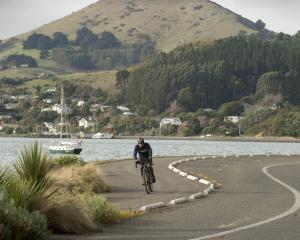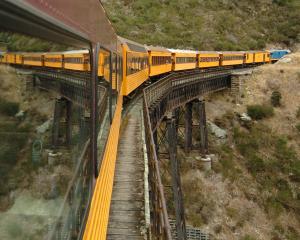There is a great deal to be said about the consent applications for industrial-scale dairying in the upper Waitaki now before Environment Canterbury, but let me confine myself to four issues: environmental impact; potential long-term damage to New Zealand's dairy industry; animal welfare; and, what might be termed the moral dimension.
I apologise in advance if you happen to be reading this over your breakfast, but imagine a city twice the size of greater Dunedin concentrated in a confined area in the Mackenzie basin where there are no toilet facilities or waste treatment plants.
Green Party co-leader Russel Norman already has - and has turned his nose up at the prospect.
Not unreasonably.
For this is what the proposals currently before Ecan, seeking resource consent for more than 22,000 cows, amount to.
Almost 18,000 of these would be farmed intensively, housed in cubicle stables 24 hours a day for eight months of the year and for 12 hours a day during the remaining four.
According to Environment Waikato, cows produce about 15 times more waste than humans - there'd be the untreated waste equivalent of a city of about 270,000 people dumped on the land every day.
That's one heck of a lot of the proverbial.
There are smoke screens and large dollops of manure being spread around over the revelations.
One of these, as the story hit the headlines, was the line from a Federated Farmers spokesman that the dairy farmers were being forced into this sort of intensive "housed" farming because of environmental lobbies and the strictures they impose.
This is gob-smackingly disingenuous.
The truth is that these proposed farms - 16 in all, which makes for an average of more than 1000 cows per unit - are for land which is unsuitable for traditional New Zealand dairying because it does not have the pasture for grazing, and the climate is far too hostile.
Having gobbled up all the arable land, converted all the marginal land from sheep farming to dairy through vast irrigation systems - irreversibly damaging numerous of this country's streams and rivers in the process - businesses are now looking to cash in on New Zealand's dairy industry by placing vast factory farms on the iconic interior.
The consignment of tracts on the Mackenzie basin - its groundwater, rivers, lakes and streams - to a state of nitrogen-polluted, blooming, nutrient-fouled shadows of their former selves would be short-sighted environmental vandalism.
Although it hasn't to date used such vocabulary, Fonterra, the dairy industry's flagship producer and marketer of milk and milk products, clearly feels that, unchecked, the proposals could go some way towards the ruination of the country's reputation as a clean, green, "free-range" milk producer.
Pasture-fed, free-roaming, free-grazing herds are central to the image and point of difference used in marketing its products to the world.
It's what helps to give the company its competitive edge.
"We don't believe stall-based farming of this type is consistent with New Zealand's reputation as a source of dairy products from substantially grass-fed cows," said Tim Deane, Fonterra's milk supply manager.
Cubicle farming is common in Europe and North America, with little apparent detriment to the health of the animals, but welfare activists point to problems with lameness from a life led standing on hard floors, and an elevated level of mastitis in cows housed in high concentrations.
The spectre of the excessive antibiotic use, prevalent in other high population density industrial farming ventures, also looms.
The suspicion must be that the people behind the proposals - two of the companies have business addresses in Tauranga - are not farmers; at least not real farmers, who for generations have taken care of the land, made their living from it, and preserved it for posterity.
What is being proposed, despite all the blather about the modern face of the industry, is not farming.
It's exploitation: exploitation of the land, exploitation of the animals, exploitation of the generations of honest toil by farmers in creating an industry with a worldwide reputation for excellence.
The term "cowboys" comes to mind.
They will cash in on the industry, take their profits out of it and move on, leaving it scarred and devalued.
There will always be those who would pillage the land in the name of economic progress.
In this case it should be stopped, not just because it is repugnant at a number of levels, but also because it could prove economically disastrous for farmers, the dairy industry, and therefore the country.
Simon Cunliffe is assistant editor at the Otago Daily Times.












